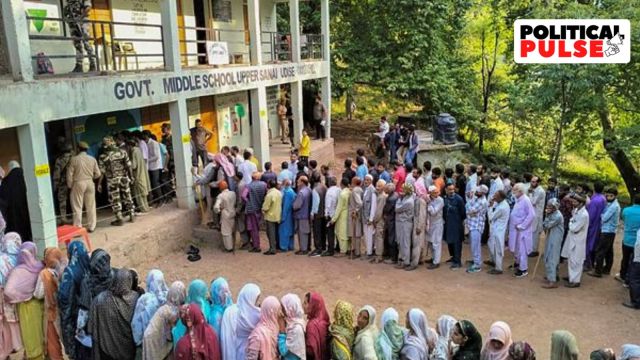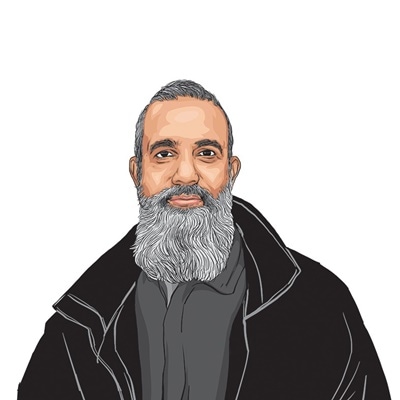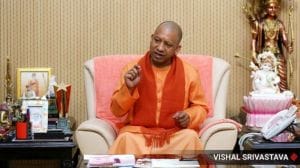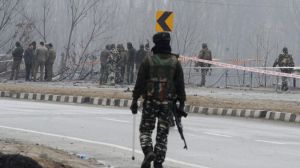Jammu and Kashmir saw brisk voting in the first two phases of the Assembly polls, being held after a decade, with almost 60% turnout in Phase 1 and around 70% in Phase 2 in Jammu districts hit by terror attacks since 2021. However, in the eight Assembly seats in Srinagar, the turnout was a low 29.81%, a marginal increase compared to the 2014 Assembly polls (27.77%) and the recent Lok Sabha elections (25%).
While Srinagar has a history of low polling — voters in the city and other urban centres in the Kashmir Valley have boycotted both Parliament and state elections in the past — the mainstream parties in the state blamed the Centre’s Kashmir policy for the low turnout and the absence of a “vibrant Opposition”.

“I believe it (low turnout in Srinagar) is the fault of the Central government that compared the high poll percentage (in the Lok Sabha elections) with normalcy and terming it an effect of the revocation of Article 370. I think the low turnout was a reaction to that,” National Conference (NC) vice president and former J&K Chief Minister Omar Abdullah told reporters on Thursday.
Story continues below this ad
In a post on X on Thursday, Peoples Democratic Party (PDP) leader Waheed Para, who contested the elections from Pulwama, said, “For those questioning the low turnout in Srinagar: the years-long crackdown on PDP, the splitting of its cadres, and the fragmentation of the Opposition into three factions have pushed voters away rather than encourage participation.”
Para told The Indian Express that an analysis shows there was a good turnout in seats where there was substantial competition. “See, for example, Charar-e-Sharief or Kangan or Ganderbal, even Eidgah in Srinagar. Wherever, there was competition, a vibrant fight, people came out to vote. In the last few years, the Centre cracked down on the PDP and split it into three parties. The cadres have been split and in many seats, there is no competition to the National Conference. As a result, the traditional voters (workers) came out and the common people stayed away.”
The lowest turnout in Srinagar was recorded in Habbakadal at the heart of Srinagar city where 18.39% of the voters turned out, a full 3.92 percentage points less than in 2014. Of the 16 candidates in Habakadal, only NC’s Shameema Firdous is seen as a serious contender, with the BJP’s Ashok Bhat solely relying on the Kashmiri Pandit vote. In Habbakadal, the turnout was 5.32% in the 1996 Assembly elections, 3.21% in 2002, 11.62% in 2008, and 21% in 2014. Independent candidate Raman Matoo won the 2002 election, securing just 587 votes in the seat that that more than 60,000 electors at the time.
In comparison, the Eidgah constituency where the NC’s Mubarak Gul and the PDP’s Khurshid Alam are in the fray saw 36.95% polling, the highest of any Srinagar Assembly segment.
Story continues below this ad
A general voter apathy shaped by separatist politics over the decades is also one possible reason for the low turnout. Senior separatist leaders including Mirwaiz Umar Farooq, Yasin Malik and Masrat Alam hold sway in different pockets in the city.
“We have been traditionally boycotting the elections in the city, more so in our constituency,” said a 52-year-old resident of Khanyar, adding that he has never voted. “For us, it doesn’t matter who is going to rule or who is not. It hardly matters at the end.”
“It is true that we do not need to ask for development as in rural pockets. We are the heart of the city and development is natural. This is also a reason for us not to come out to vote,” said a 60-year-old resident of the Barbarshah neighbourhood who too did not vote.
Several voters cited a “disempowered Assembly” with limited powers on key issues that matter to people as the reason for the low turnout in the city. These voters said the MLAs would be “helpless” before New Delhi and hardly redress their grievances.
Story continues below this ad
“I would have voted had they (NC and PDP) continued with the alliance,” said a 32-year-old resident of Nowhatta. “But they are involved in petty politics and peoples’ interests are taking a backseat. How can you vote for such parties.”

































